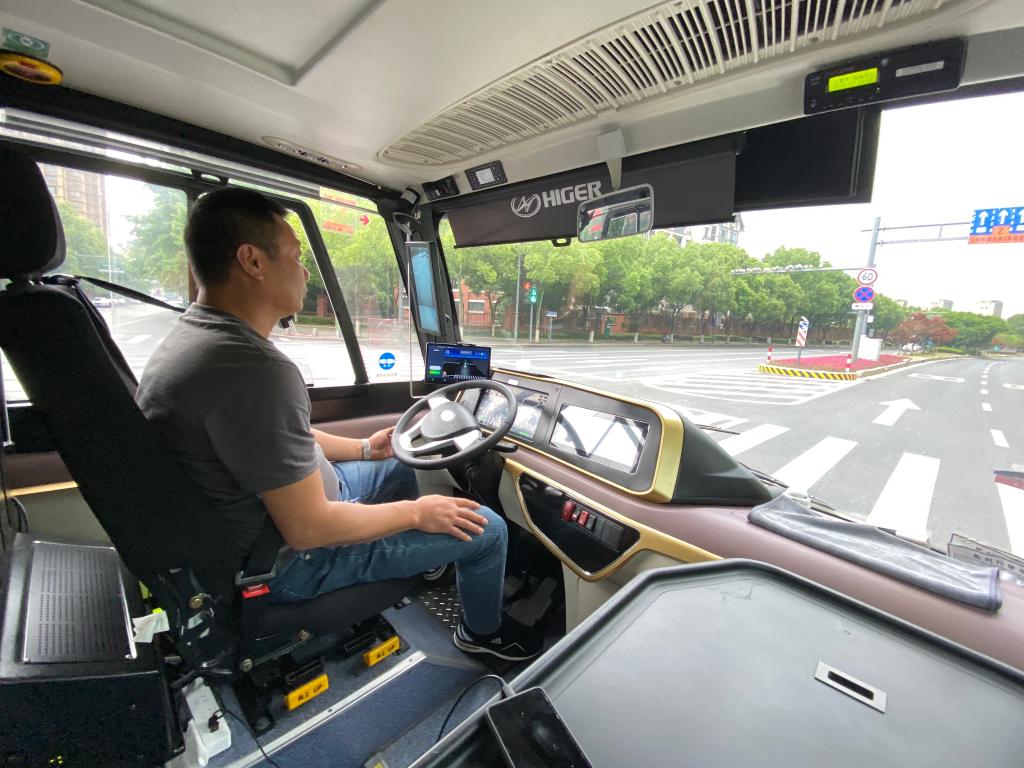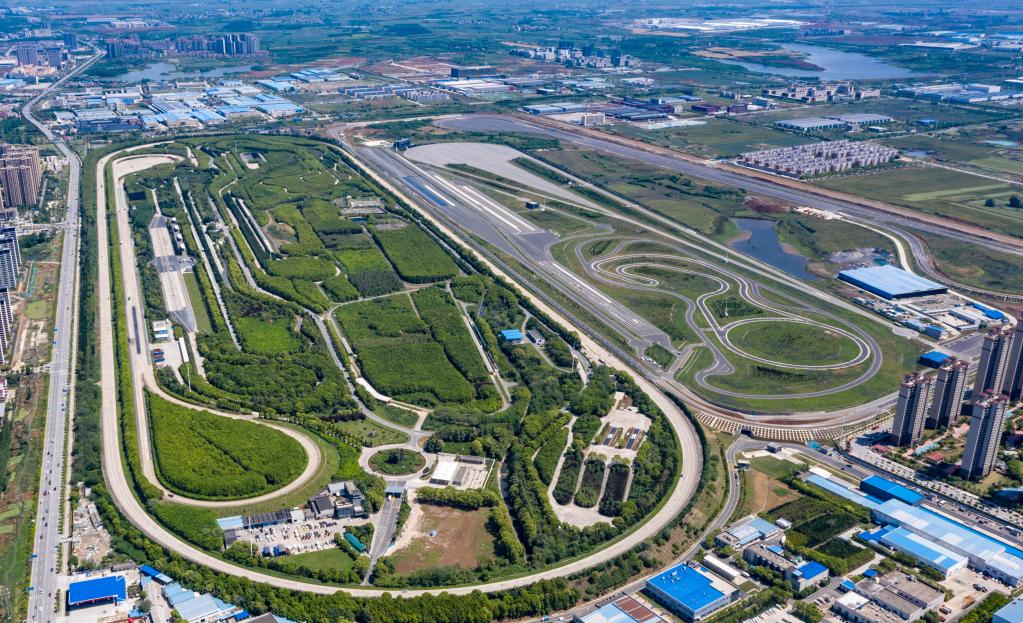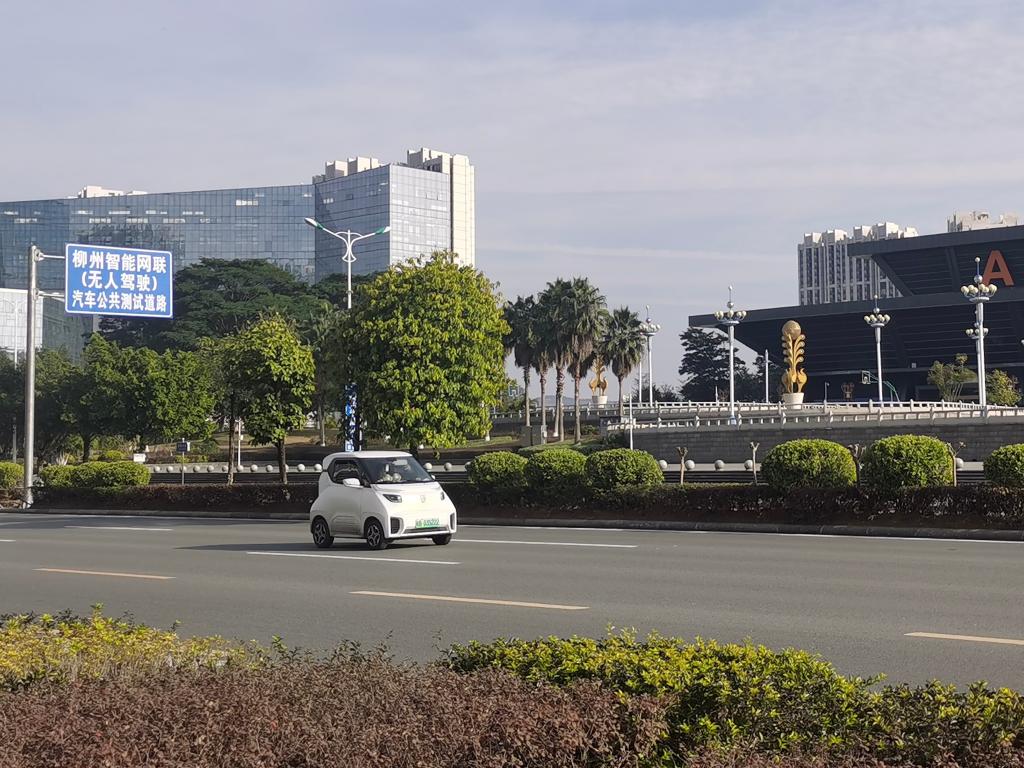Promoting Industry Integration and Accelerating Industry Layout —— Observation on the Construction of National Vehicle Networking Pilot Area
Xinhua News Agency, Beijing, June 12th Title: Promote industrial integration and accelerate industrial layout — — Observation on the construction of national car networking pilot area
Xinhua news agency reporter
In April, at the 2023 Shanghai Auto Show, new technologies such as car networking became a hot spot; In May, Tianjin held the World Intelligence Conference and set up an intelligent networked car experience zone; In June, 2023 Jiangxi Vehicle Networking Security Conference was held … … Since the beginning of this year, the society has paid more and more attention to the car networking industry, and all localities have accelerated the layout of related industries.
In April, the Ministry of Industry and Information Technology explicitly supported Hubei (Xiangyang), Zhejiang (Deqing) and Guangxi (Liuzhou) to create national-level vehicle networking pilot zones. So far, seven places across the country have been approved to create national-level vehicle networking pilot zones. How is the construction progress of the three places? What other aspects should be exerted to promote the application of the Internet of Vehicles industry? The reporter conducted a field visit.
The achievements of building smarter cars and safer roads are beginning to show.
Deqing County, located in the north of Zhejiang Province, once hosted the first United Nations World Geographic Information Conference. The reporter boarded a pure electric bus at the bus stop of Tashan Forest Park in the county, only to see the driver turn on the automatic driving mode after slowly leaving the station, and then leave the steering wheel with both hands. According to the road conditions, vehicles will automatically drive according to road markings, signal lights, etc., and will take the initiative to stop and give way when they meet the sidewalk when turning.
"The vehicle is equipped with a variety of automatic driving sensing devices such as laser radar, millimeter wave radar and visual camera, which can realize accurate perception of the surrounding environment and has L4 automatic driving capability." Qian Jianfeng, project manager of Huzhou Branch of China Mobile Communications Group Zhejiang Co., Ltd., said that the line will provide services to the public during the Asian Games in Hangzhou.

The picture shows that in Deqing, Zhejiang, the bus driver turns on the automatic driving mode. Xinhua News Agency reporter Wei Yijun photo
The reporter walked into the car networking operation center of Xiangyang City, and an electronic big screen showed the intersection traffic, intelligent bus operation and intelligent transformation progress of the intersection in the central city. When the staff clicks the mouse, the intersections that have been intelligently transformed in the central city are connected into lines and gathered into pieces. Zhang Xiaohui, deputy director of Xiangyang Economic and Information Bureau, said that it is estimated that by the end of 2023, Xiangyang will complete the renovation of 448 intelligent intersections in the central city and realize the global coverage of intelligent networking equipment.
The car networking industry is a new industrial form with deep integration of automobile, electronics, information and communication, road transportation and other industries. In recent years, Hubei, Zhejiang and Guangxi have made overall efforts to promote the innovation and development of the car networking industry, aiming at the functional transformation of car networking in key areas and the enhancement of core system capabilities, the cross-border integration development of "geographic information+car networking" and the large-scale and in-depth application of car networking. They have a good industrial development foundation, and thus joined the ranks of creating national-level car networking pilot areas.
At present, seven places have been approved to create a national-level pilot area of vehicle networking, covering the eastern, central and western regions, and the exploration results are colorful: Wuxi took the lead in promoting the introduction of local laws and regulations for the development of vehicle networking; Tianjin Xiqing District has developed a "5+3" vehicle-road cooperative operation platform; Changsha is planning to build an intelligent networked automobile innovation and application demonstration zone.
Based on its own advantages, accelerate industrial development
The Ministry of Industry and Information Technology requires relevant provinces to deploy in accordance with the Action Plan for Industrial Development of the Internet of Vehicles (Intelligent Networked Vehicles), speed up the improvement of the collaborative working mechanism, step up implementation, and promote the application and industrial development of the Internet of Vehicles.
Liuzhou has four production bases of SAIC, Dongfeng, FAW and Sinotruk. Zheng Wei, head of the Industry Department of the Big Data Development Bureau of Liuzhou City, said that the local authorities should fully combine the needs of local car companies to build a "low-cost, wide-area coverage" road-side cooperative infrastructure. At present, 125 intersections in the main urban areas have been upgraded, and 241 sets of vehicle networking C-V2X roadside devices and 1566 sets of roadside sensing computing devices have been built.
"Deqing around ‘ Geographic information ’ And ‘ Global opening ’ Two characteristics, active planning ‘ Geographic information+car networking ’ Cross-border integration and development. " Yu Xin, a staff member of Dixin Development Center in Moganshan High-tech Zone, Huzhou, said, "Deqing Intelligent Networked Vehicle Test Site, which covers an area of 172 mu, is the only public test site in Zhejiang Province that meets both bicycle intelligence and intelligent network testing. Since the completion of the test site, 28 autopilot test licenses have been issued to 20 companies. "
Xiangyang is accelerating the development of intelligent networked vehicles and promoting the transformation and upgrading of the automobile industry to electrification, intelligence and networking.

The picture shows the intelligent networked automobile test site of Xiangyang Daan Automobile Testing Center. (Photo by Wang Hu)
In Xiangyang High-tech Zone, the reporter saw that a 33.4-kilometer intelligent networked vehicle public test road has completed construction and equipment installation, and entered the stage of equipment joint debugging; An intelligent networked automobile science and technology innovation town integrating intelligent networked development and testing, production supporting, demonstration and application, incubation and innovation and Industry-University-Research education base is stepping up construction, and the intelligent networked automobile industry chain service platform is being accelerated in Xiangyang.
Large-scale application and promotion need multi-directional efforts
According to the data of the Ministry of Industry and Information Technology, as of 2022, the sales volume of new intelligent networked passenger cars equipped with auxiliary automatic driving systems in China reached 7 million, a year-on-year increase of 45.6%; The proportion of auxiliary automatic driving system for new energy vehicles is 48%. According to the White Paper on the Internet of Vehicles issued by China Information and Communication Research Institute, it is estimated that by 2025, the size of China’s smart car market will be close to one trillion yuan.
The industry insiders believe that large-scale and city-level car networking infrastructure construction is a necessary prerequisite for commercialization support and large-scale demonstration, and all localities should increase their efforts in infrastructure construction.

The picture shows a car equipped with intelligent networking equipment driving on the test road in Liuzhou, Guangxi. (Photo by Li Xiaolin)
Experts interviewed said that there is still a lack of industry standards and institutional norms in the field of car networking.
Deqing County has previously issued the "Seven Opinions of Deqing County on Supporting Autopilot Testing Services" and participated in the compilation of the provincial standard of geographic data in the field of autonomous driving, "Specification for Basic Geographic Data of Intelligent Networked Automobile Roads". Yu Xin suggested that taking high-precision maps as an example, it is necessary to further clarify the delivery interface and delivery format of map data among surveying and mapping units, map dealers and car dealers, and promote the in-depth application of high-precision maps for intelligent networked vehicles.
The person in charge of the car networking project of Liuzhou Dongcheng Group Dongke Smart City Investment and Development Co., Ltd. believes that the industry has not yet formed a mature business model for car networking applications, and Liuzhou is actively exploring in this field, such as gradually empowering vehicles with car networking on local time-sharing cars. It is suggested that more sustainable business models be explored in various places in the future.
Miao Changxing, a first-class inspector of the Equipment Industry Division I of the Ministry of Industry and Information Technology, said that in the next step, the Ministry of Industry and Information Technology will strengthen top-level strategic planning, adhere to the integrated development route of automobiles and Lu Yun, strengthen overall coordination, strengthen innovation drive, optimize policy supply, and jointly promote the high-quality development of the intelligent networked automobile industry. (Reporter Wei Yijun, Zhang Xinxin, Nong Guanbin, Hou Wenkun)